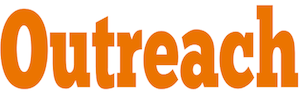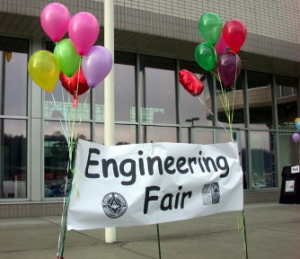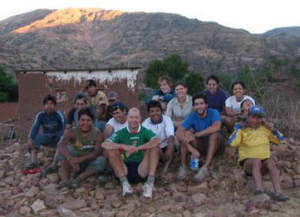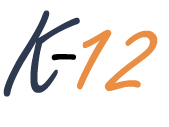I'll admit it. I'm a person who gets bored... very easily.
Of consequence, there is one thing I find intolerable for myself: inactivity.

There are lots of people like me and we understand each other--probably because we spend a lot of time together, since we see each other everywhere.
- I see the same people when I volunteer at Seattle's Carkeek Park as a Forest Steward, or at other Forest Steward trainings around the city.
- I see the same people when I attend mentor seminars for Washington State's Department of Social Health Services' Juvenile Rehabilitation Administration's youth mentoring program.
- I see the same people at volunteer events for Seattle's Climate Action Now (CAN) Carbon Coach Program.
- I saw the same people every week while training since January for my (first!) full marathon with the Leukemia andLymphoma Society's Team in Training (TNT) program.
And guess what? I see the same handful of people volunteering for my local AIChE section's outreach events!
So, my instinctive engineer's curiosity is getting the best of me and wants to know: how can I draw more people to participate in outreach events and what are successful examples of outreach through local AIChE events?
As chair of a local section in a region that wants for chemical engineering industry, I frequently question the extent to which local section programming can draw fellow chemical engineers out of the proverbial wood work (and in thePacific

Northwest, there is plenty of forest and wood to go around). After a year at the steering wheel, and with the help of other officers, the Executive Committee of the Puget Sound AIChE local section (PSAIChE) is starting to look into one programmatic resource that we hope will not be exclusive to chemical engineers in the area, but impact all local engineers and community members in general: outreach.
The appeal of using a tool such as outreach is that it can take a number of forms, can virtually be applied within any context and, naturally, spurs that "feel goodery" that can genuinely inspire and motivate others within our communities. Through AIChE, however, pursuing outreach begs the question: in what form should outreach be pursued? Isn't participation in AIChE inherently a means of "outreach?"

The extent of outreach at PSAIChE over the course of 2009--2010 included sponsoring a booth at the Puget Sound Engineering Council's (PSEC) annual Engineering Fair during E-Week. The PSAIChE booth allowed young students in grades K - 12 to extract DNA from strawberries by using simple ingredients available at local supermarkets. Other examples of outreach included establishing a direct connection between the University of Washington's Engineers Without Borders (EWB-UW) student chapter and volunteering PSAIChE members as mentors to EWB-UW project teams, or sending mentor representatives to local PSEC "mentor networking nights" for area engineers.
Now, PSAIChE is interested in enhancing its local section programming by establishing a formal connection with Puget Sound area K-12 students.
My own personal experience as a mentor of a youth in the Seattle area who has gone through the Washington State juvenile correctional system has taught me that forging these

unique, personal bonds with younger students can carry a much larger impact than infrequent, non-continuous forms of contact. That said, the same experience has also taught me that there are plenty of unforeseen issues and difficulties involved in trying to make a significant impact in a developing youth's life. So what is the formula for success that is consistent, reliable and influential?
The same formula must also be universally applicable and replicable. Easier said than done!
Other entertained forms of outreach include PSAIChE's newest endeavor to develop a scholarship program that rewards students or new graduates who are active in global outreach. An eye for an eye--but only in the best sense.
What kind of outreach programs does your local AIChE section sponsor or hold on a regular basis?
What kind of lessons can your local section teach other sections in terms of outreach?
We all want to make a difference - it's almost intuitive that chemical engineers can leave a huge mark encouraging younger students to pursue science, technology, engineering and mathematics (STEM) disciplines. That may be the low hanging fruit, but what else has worked for you?


Comments
This is great! There used to be more K-12 involvement from local societies, but low-fee and fee-free locations to hold them have all but disappeared. Teaming up with a college section can give access to locations, but with the economy as such there is no free lunch. There is an Earth Day celebration that a nearby city puts on, that the engineering groups participate in. Schools used to be more accomodating as well - now its all but impossible to speak directly to students about engineering and science. It is so valuable for them to hear from actual engineers about engineering, otherwise they have to rely on what their high school guidance counselor says, and they may not know all of the opportunities available to engineers. Hopefully my area will turn around and become more like Seattle. (Great job on the marathon, by the way!)
In additon to Engineers week, the organizations here conduct chemistry day where you can go to schools to do chemistry demos or bring the kids to a common place to demonstrate fun chemistry. We also conducted Math day where we played puzzles with the kids. I have also heard folks conducting essay competition. Give a topic to the school kids, invite them to write an essay and select top 5-10 to present it on a day and award top 3. I liked that.
Chemistry Day sounds great! There was a group in college that used to go out and do experiments for kids at local elementary schools, but I don´t think it was organized into just a day event. Locally, we conduct a STEM event where papers are submitted, presentations are made and then winners are awarded - we always have some really great submissions. Some of the submissions from high school students are really impressive!
Our company has a program called GEM4STEM (if you google that, it will take you to the external website). This stands for Growing Educational Mentors for Science, Technology, Engineering, and Math. This program gives the employees a certain number of hours each year to spend in the classroom with students. Teachers can submit request forms for a GEM for any number of activities: classroom demonstrations, tutoring, working with a special group of students, career advice, science fair judging, etc. This program works well because our company supports the time spent in the classroom, and teachers have a way to contact GEMs for support. I am surprised that anyone has trouble getting schools to allow them to speak to students - it seems the schools around here are begging for professionals to interact with their students to give the students a better feel for the real world. I love working with K-12 students and appreciate that my company provides that opportunity.
Thanks everyone for the helpful and inspiring comments and suggestions! It's really great to hear what others have done -- now I know who to turn to with questions for getting these exciting activities/programs off thr ground for our local section!